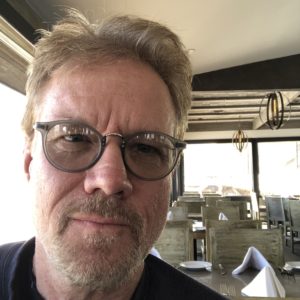
Jeff Hasty
Professor, University of California, San Diego
Jeff Hasty received his Ph.D. in physics from the Georgia Institute of Technology in 1997, where he learned how to do science from his advisor Kurt Wiesenfeld. He was subsequently a postdoctoral fellow at Boston University, where he learned engineering from Jim Collins in the Applied BioDynamics Lab (’98-’01). Somewhere during his postdoctoral stay with Jim he mutated from a theoretical physicist into a hybrid computational/molecular biologist. He is currently at the University of California, San Diego, where he is a Professor in the Departments of Bioengineering and Molecular Biology, Director of the BioCircuits Institute, and Co-Director of the UC San Diego qBio Ph.D Specialization Program. He is considered a pioneer and leader in synthetic biology. His early career focused on tackling central impediments to the creation of an engineering discipline. He created genetic clocks to develop the underlying equations that drive circuit design, and used them to explore the coupling of gene circuits with their host genome. Faced with the inevitable noise of intracelluar gene regulation, he was the first to demonstrate how bacterial colonies can be engineered to function deterministically through the use of intercellular synchronization. He introduced the concept of “synergistic synchronization,” whereby two synchronization mechanisms couple colonies of bacteria at centimeter length scales. He used this concept to develop inexpensive biosensors that don’t require complex optics. He has engineered periodic lysis of a bacterial colony such that population levels oscillate within a tumor microenvironment and release an encoded therapeutic. This design directly addresses the problem of systemic inflammatory response with programmed population control; since the colony is pruned after each oscillatory lysis event, the design mitigates an undesirable host response.
Visit website →